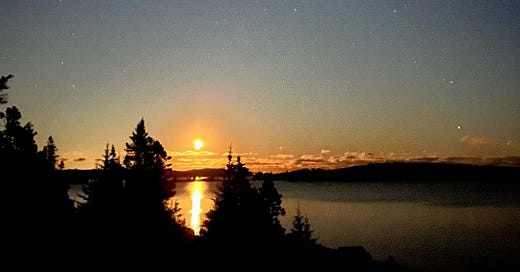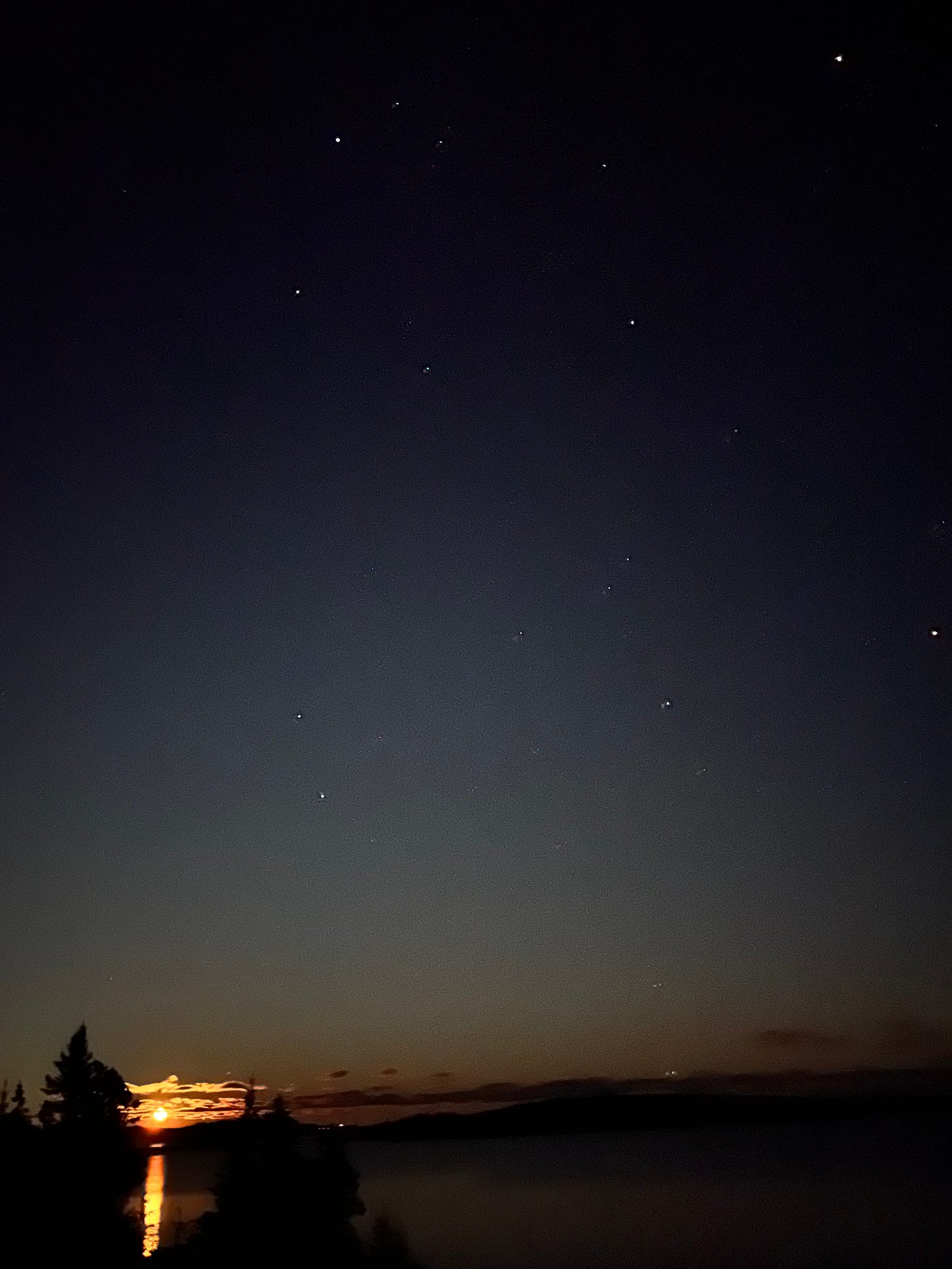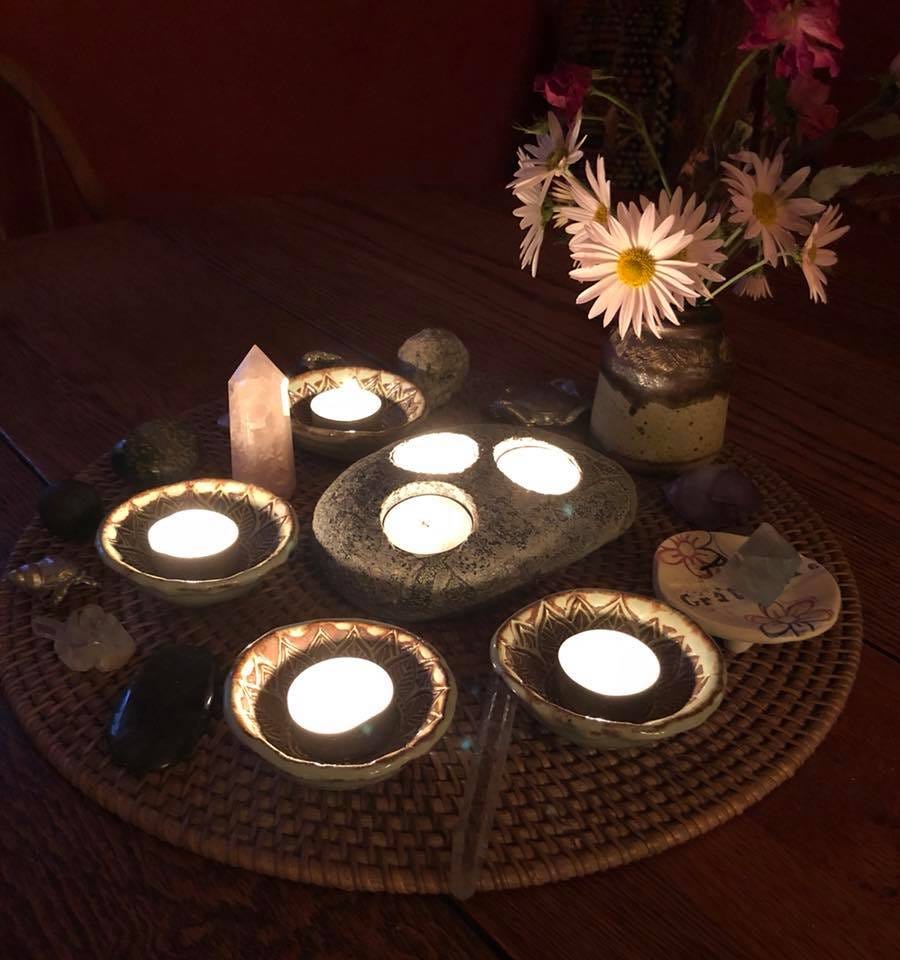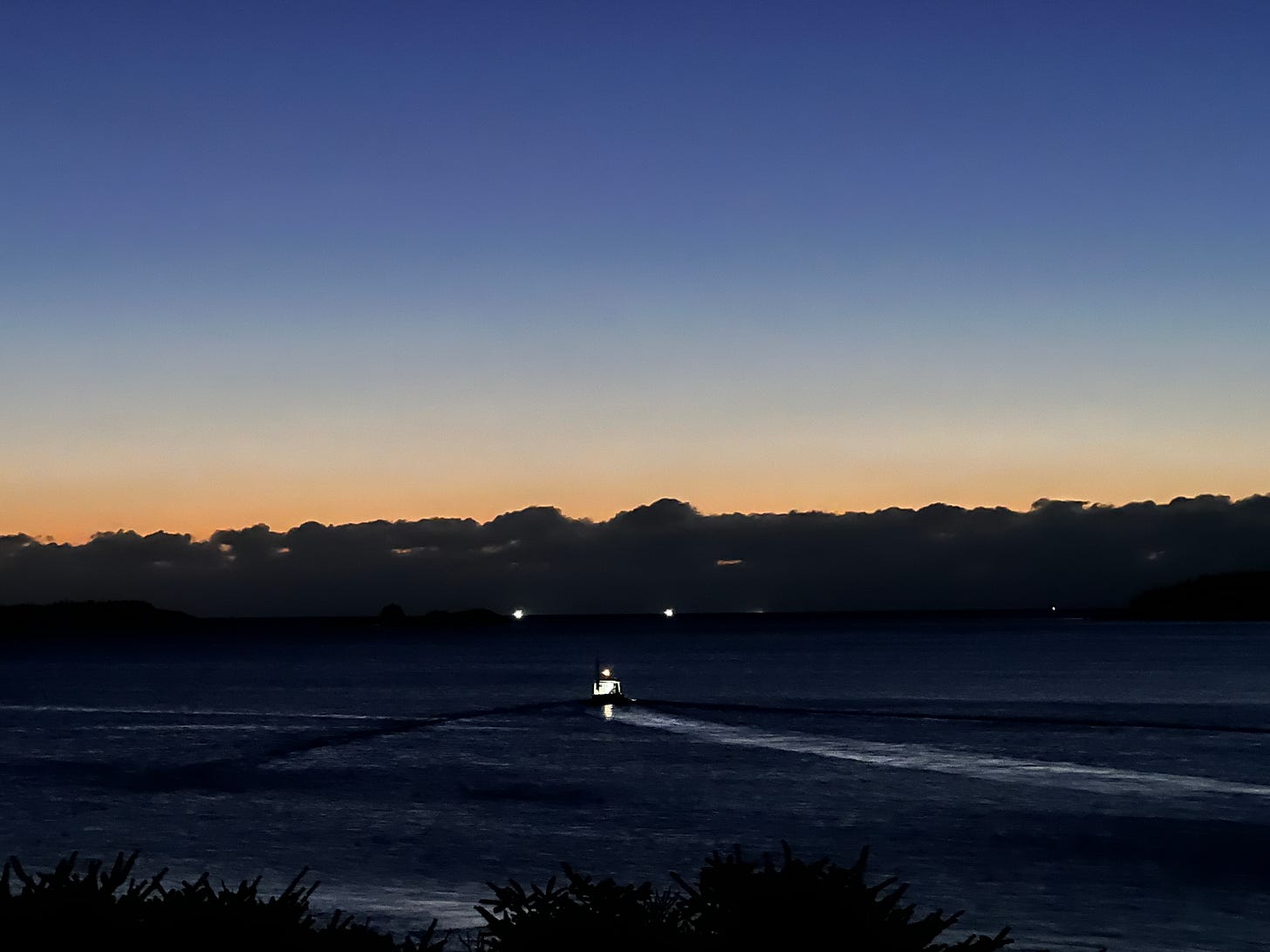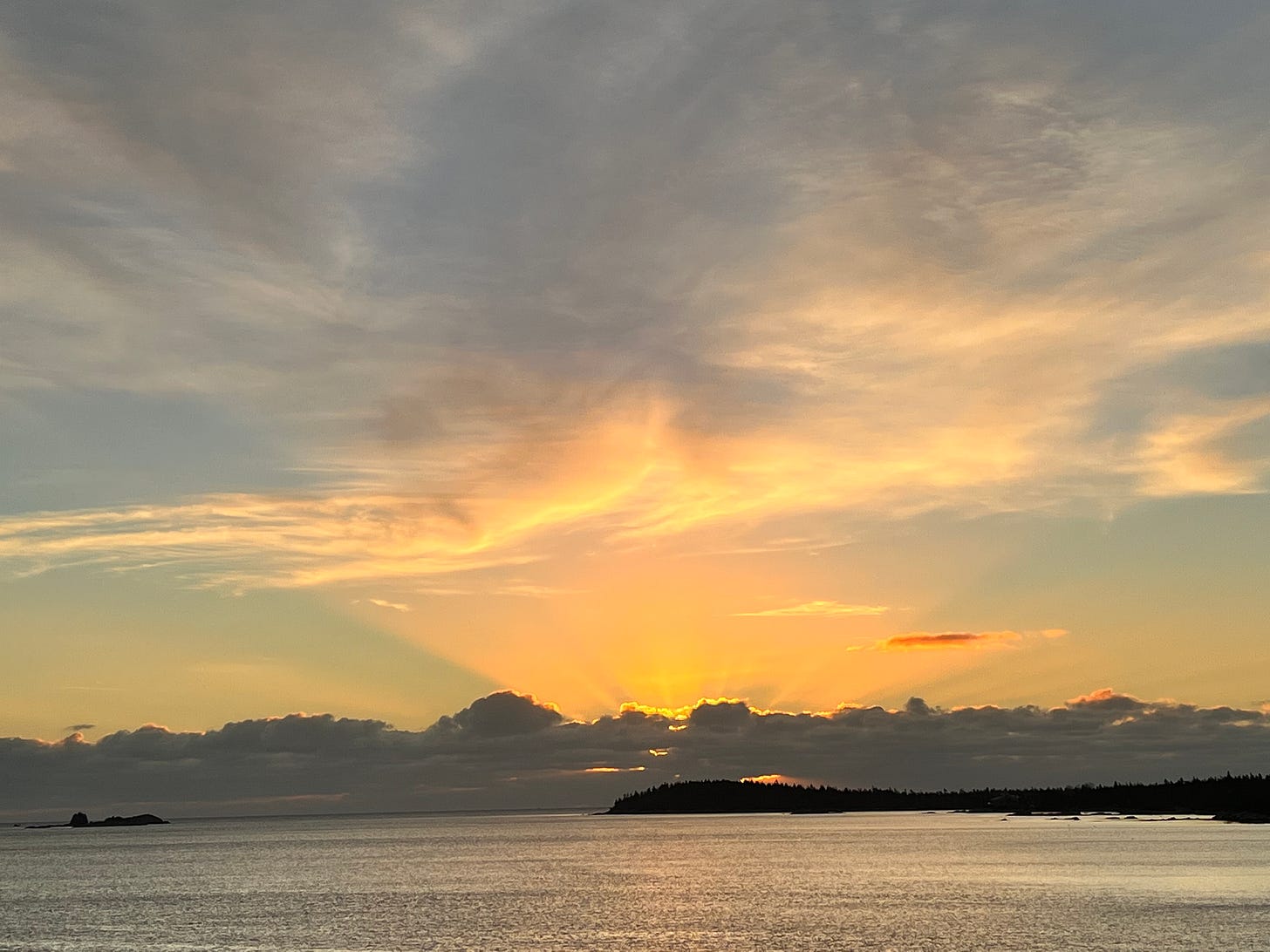Dispatches from the Dreamland
What if sleep, dreams and intuition are more important than we’ve realized, vital to our ability to create a flourishing reality for ourselves and future beings?
It seems clear to me, and fairly obvious, that one of the great problems of modern civilization is the erosion of sleep, both in quantity and quality. The issue took a big turn for the worse with the invention of the smart phone, when we began to take our devices to bed with us, replacing the calming bedtime story with the endless frenetic activity of the little screen.
People of all ages report trouble with sleeping these days—I am speaking anecdotally here, about people I know, but the statistics tell the same story.
We know that we need good sleep to function well during the day. But most of the thought and research around sleep is in a mechanistic vein: our body is a machine that needs the fuel of sleep to do its job properly during the day, so as to contribute materially to the smooth functioning of the big societal machine.
What if sleep had a deeper spiritual meaning and purpose, equally important to the wellbeing and good functioning of not just human society, but of All That Is?
Moonrise. Photo by J. Browdy
What exactly happens when we sleep is still one of those mysteries that science has yet to solve. Freud posited that during sleep our “unconscious” takes over from the conscious self or ego, generating dreams as messages to be decoded so that the ego could gain greater insight and ultimately control over waking experience.
Jane Roberts and Seth tell a different story, one that I think we need to listen to more carefully in order to understand just how important sleep and dreams really are.
For Seth, the psyche (what Freud called “the unconscious”) is a portal into the multidimensional reality of All That Is, which is constantly being created by the limitless interactions of the energy of consciousness, the primal “stuff” of the cosmos, from which everything in our physical world emerges and falls back into, like waves in the sea.
When we sleep, we reenter this primary matrix of the cosmos, a creative realm beyond space and time, to which all consciousness, of everything and everyone, contributes. Here, according to Seth, we can meet with people and other beings from the past and future and other dimensions entirely. Whether or not we remember our dreams, whether or not we can in any way direct the events of the dreamland, what happens while we dream is important and has an impact on our waking reality.
Seth is a quantum thinker and an ecological thinker, both avant la lettre (he spoke through Jane Roberts for about 20 years, from the mid-1960s to her death in 1984, producing book after book of intense spiritual philosophy explaining human purpose in relationship to All That Is). He explains that just as what happens in our waking reality is the product of myriad individuals (from atoms to cells to microbes to mammals and trees, etc.) all acting to shape physical reality, the same is true in the dreamland, only even more so, because there we are beyond time and space.
Seth often sounds like the very furthest out of psychedelic gurus and quantum physicists when he talks about how every single component of physical reality has consciousness, understood as creative energy; and all “consciousness units” work together in service to their own “value fulfillment,” understood as radically egalitarian individual and collective flourishing.
In the dreamland all possible permutations of reality are explored by all forms of consciousness—past, present and future—and out of this primal creative soup come the desires, intentions and actions that form the waking realities of the dreamers.
Photo by J. Browdy
Although quantum theory has finally caught up with ancient spiritual wisdom, affirming the age-old human perception that there is more to life than what meets the eye, the official discourse of modern Western society is still deeply entrenched in the materialist, mechanistic view of the world, paying lip service to spirituality only within the tightly defined rituals of religion.
All contemporary religions have at their center beliefs in a nonphysical world beyond ordinary reality. Most continue to repeat ancient messages channeled by their “saints” and “prophets,” yet they discount, and even discourage, active engagement by ordinary people with the spirit world.
In Seth’s perspective, this is exactly what every single human does every night when we leave our physical body and voyage out beyond time and space, in the dreamland.
What would happen if we gave this second half of life, the vast number of hours that each of us spends asleep, more respect, inquiry and cultivation?
What if instead of training ourselves and our children to wake quickly and get to work, we recognized sleep as an equally important form of “work”?
Even as I write this, I scoff—letting ourselves sleep in? Impossible! We have to get to work, we have to be on time, our whole system would crumble if we allowed ourselves to sleep in!
But maybe that’s precisely the point. Our unsustainable, damaging system needs to change radically—and it will, one way or another.
What we call “the mental health crisis” is one way that people of all ages are trying desperately to extricate themselves from an inhumane, dysfunctional system; the rising tide of addictions and suicides show starkly just how difficult modern life has become for huge numbers of people.
What if the relentless focus on the negative in our news and entertainment media, as well as in our educational curricula, skews our perceptions not only in waking consciousness, but also in the dreamland, creating a negative feedback loop that is spinning our world ever more out of balance?
What if lack of sleep, and poor quality of sleep, is a much bigger issue than we’ve realized?
Lobster boats out before dawn. Photo by J. Browdy
We need to prioritize understanding what happens when we dream, not just in terms of measurable physical aspects like brain waves, but also seeking more understanding of the spiritual dreamland we roam while asleep, and how what happens there affects what happens during our waking hours, in our individual lives as well as in our shared physical reality.
Seth took great pains to encourage Jane and her husband Rob to cultivate their ability to practice intentional, lucid dreaming and to be more sensitive to the interactions between the dreamland and waking reality, often taking the form of intuition and precognitive insights. He said that if humans could become more skillful in using our innate creative ability to affect physical reality, it would not only improve individual wellbeing and success in a given lifetime, but the wellbeing of the entire physical reality of which that life is a part.
Could it be that the key to shifting the human relationship with each other and our planet from harsh materialist over-consumption to harmonious ecological flourishing lies not only in what we do while we’re awake, but also, and possibly even more importantly, what happens while we sleep?
If so, how might we reimagine education to give sleep, dreams and intuition a more active, vital role and cultivate our ability to create the reality we want to live into and enjoy?
As always, I welcome your thoughts!
The light of dawn. Photo by J. Browdy.

